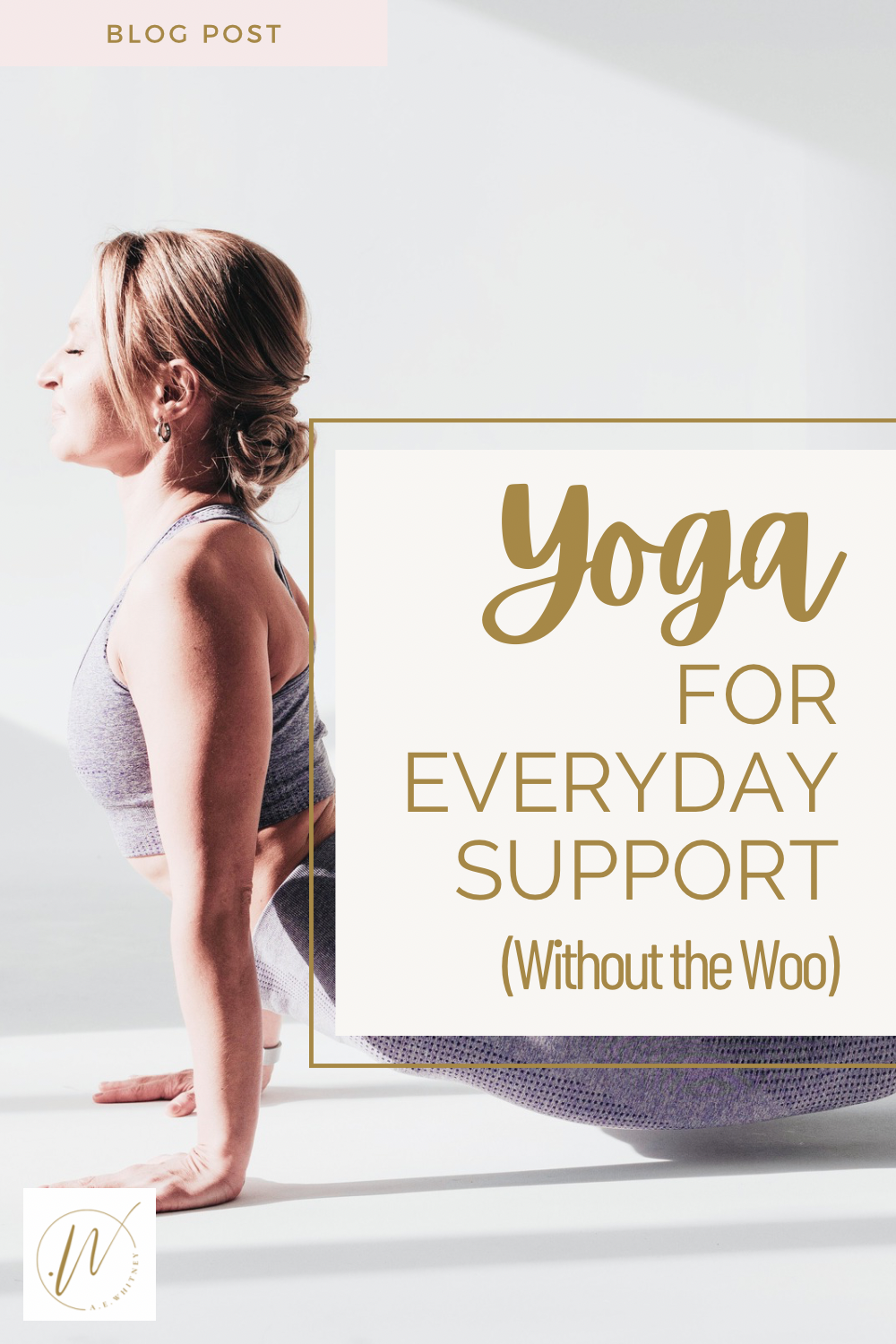Yoga is everywhere — in gyms, on Instagram, in wellness apps. But for many, the spiritual labels (Sanskrit chants, esoteric philosophy, or strict “yogic lifestyle” rules) can feel like a barrier to entry.
Here’s the good news: you don’t have to buy into the spiritual side of yoga to benefit from it. At its core, yoga is simply movement + breath designed to regulate your nervous system and improve mobility.
The Myth: Yoga Has to Be Spiritual
Traditional yoga did grow from spiritual traditions, but modern practice has evolved into something broader. If spirituality connects for you — great. If not, you can use yoga purely as:
- A nervous system regulator.
- A gentle strength + flexibility builder.
- A daily rhythm anchor that signals “pause + reset.”
The Science of Yoga + the Nervous System
- Breath-focused movement activates the parasympathetic (“rest + digest”) response.
- Slow stretching lowers cortisol and reduces muscle tension.
- Regular practice improves sleep, mood, and resilience.
Science says: Yoga reduces stress hormones and improves physical and mental health.
Why Yoga Works (Even Without Belief)
Your subconscious associates posture + breath with safety signals.
That’s why yoga feels calming — not because of magic, but because you’re shifting the communication between your body and brain.
Think of it as giving your nervous system a “reset button.”
How to Practice Yoga Without the Woo
- Keep It Simple: You don’t need 90 minutes. Start with 5–10 minutes of stretching and breathing.
- Anchor It to Routine: Pair it with something you already do (after brushing teeth, before bed).
- Focus on Feeling, Not Form: Forget perfect poses — just notice how your body feels in each stretch.
- Use Breath as the Guide: If you’re breathing evenly, you’re doing it right.
5-Minute Nervous System Reset
- Cat-Cow (spinal mobility) — 1 minute
- Forward Fold (release tension) — 1 minute
- Seated Twist (detox + reset) — 1 minute
- Child’s Pose (rest + safety signal) — 1–2 minutes
- Finish with 3 deep breaths
No chanting, no mantras — just breath, body, and reset.
The Spiral Connection
Think of yoga as a spiral check-in tool: every time you return to the mat, you’re not repeating the same pose — you’re meeting it at a new level of awareness. Your body changes day to day, and yoga gives you a rhythm to notice.
The Takeaway
You don’t need to be “spiritual” to practice yoga. You just need:
- A few minutes.
- A little space.
- A willingness to pause.
Yoga isn’t about labels — it’s about the gift of noticing your body and breath.
______
✨ “This post is just one piece of the bigger rhythm. Inside Holism School, I’ll show you how all the wellness pieces fit together into a simple self-care system you can actually live by.” [Explore Holism School]
⚠️ Please Note: This content is for educational purposes only and should not be used as a substitute for therapy, medical advice, or legal support.


